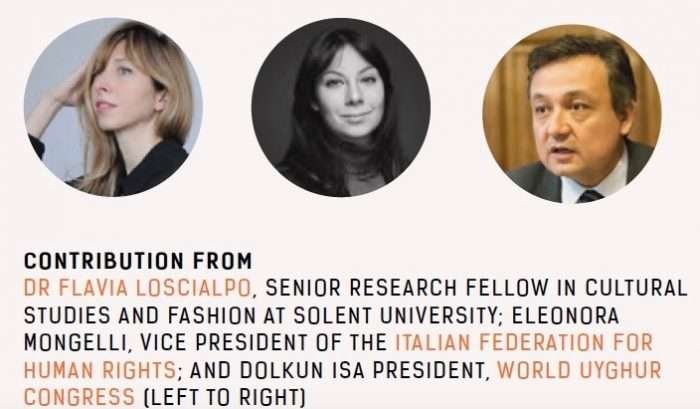Not only is transparency paramount to conscious purchasing practices, but it is the very foundation of accountability in terms of human rights and environmental issues. Disasters that make it to the headlines, such as the Rana Plaza collapse in 2013, offer an occasional window on diffused unethical, exploitative practices, and unbearably unsafe working conditions tainting the global supply chain. If opaque supply chains, characterised by multiple layers of subcontractors, make it difficult to reconstruct a clear picture, a lack of transparency can be observed also at raw material level. As of today, the majority of global fashion brands are yet to disclose information about suppliers of raw materials, and share findings from their facility-level audits, involving farms, processing facilities, and factories. The implications of this lack of transparency are clearly profound. As in the case of East Turkistan [Xinjiang] and the current Uyghur crisis, if a brand sourcing from or producing in China does not disclose information about their suppliers, the chances of their complicity in state-sponsored forced labour schemes and the Uyghur crisis are very high.
Dolkun Isa, President of the World Uyghur Congress, explains: “around 3 millions Uyghurs and Turkic people are interned in concentration camps, with many working under forced labour conditions for international brands. The genocide in East Turkistan makes it impossible for brands to conduct due diligence in accordance with the UN Guiding Principles on Business and Human Rights. The heightened surveillance means that companies or auditors have no reliable means to get credible information about conditions in their supply chains. Companies sourcing directly from East Turkistan, or having ties with state-sponsored forced labour schemes must exit the region altogether in order not be complicit”.
Uyghur forced labour is the example of the atrocities that can occur when companies are not able to verify what happens in their supply chains, and when they are not legally obliged to disclose information about their suppliers. In 2011, United Nations issued the ‘UN Guiding Principles on Business and Human Rights’ which contains three pillars: protect, respect and remedy. Over the past years, only few countries have implemented the UN decision; however, there are more and more companies operating in poor or post-conflict countries, or in countries where governments are unable or unwilling to enforce they own laws in regard to human rights and environmental standards. Human rights cannot be an option for companies. Businesses have a significant impact onhuman rights wherever they operate. This impact can be positive or negative. It is up to us to choose.


